Pastor Resignation Letter Template for a Smooth Transition
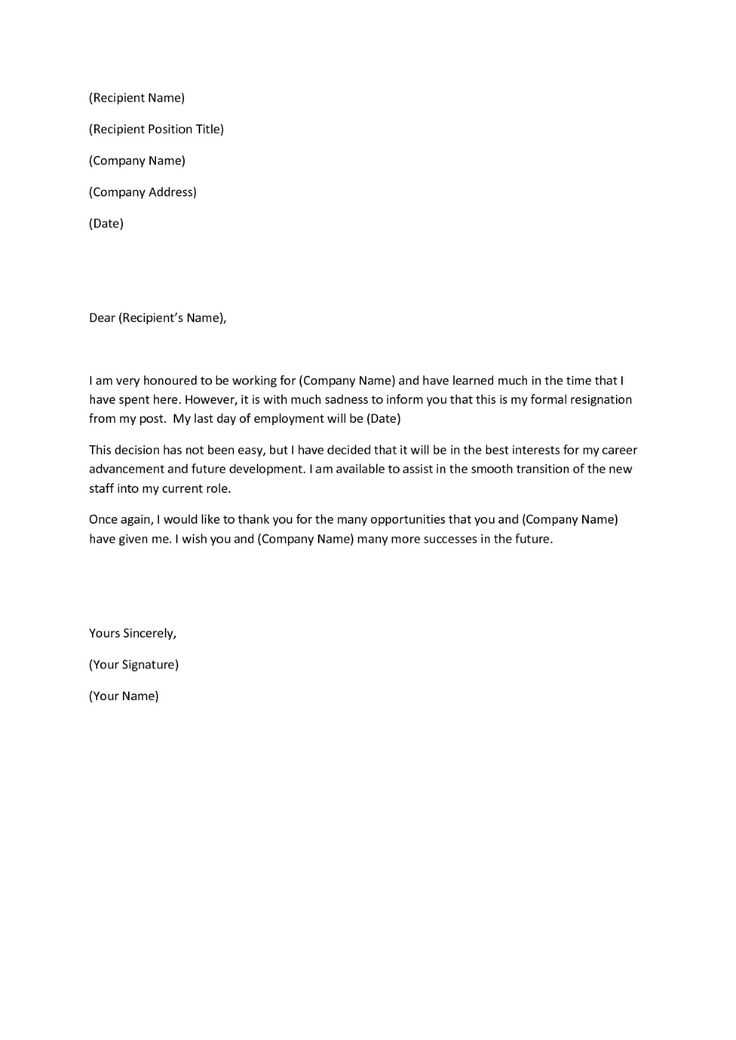
When transitioning from a significant role within a religious community, crafting a respectful and professional communication is essential. This formal notification not only informs your congregation of the change but also allows for a smooth and positive departure. It’s crucial to address your decision in a thoughtful manner, balancing gratitude with clarity. Below are some key points to consider when preparing your message.
Essential Components of a Formal Communication
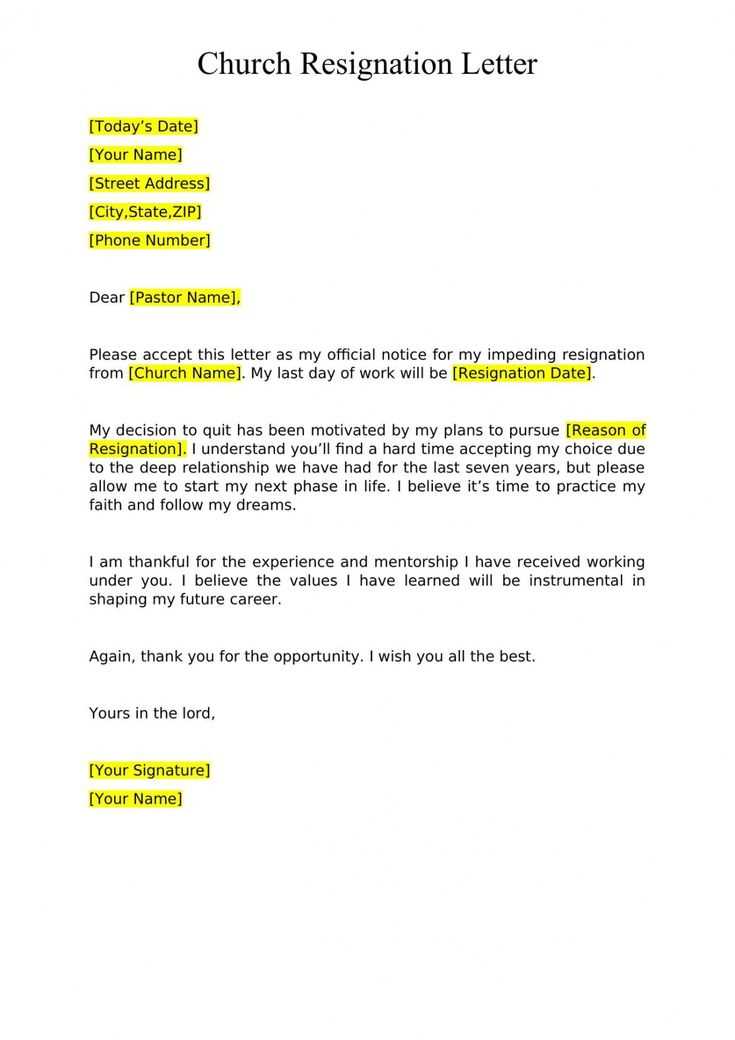
Creating a formal message involves more than just announcing your decision. Here are the fundamental elements to include:
- Gratitude: Start by acknowledging your experiences and expressing thanks for the opportunity to serve.
- Clear Explanation: Briefly explain your reason for stepping down without going into unnecessary details.
- Timelines: Specify your intended departure date to ensure proper planning for the transition.
- Future Support: Offer support in facilitating the next steps, such as assisting in finding a replacement or making necessary introductions.
Tone and Language
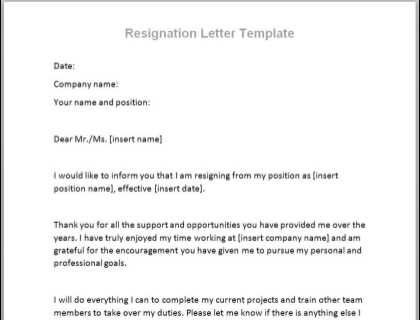
The tone of your communication should remain respectful and professional, reflecting both your dedication and understanding of the community’s needs. Avoid sounding overly casual, as it may diminish the seriousness of the message. Instead, use clear and direct language to ensure there are no misunderstandings.
Common Pitfalls to Avoid
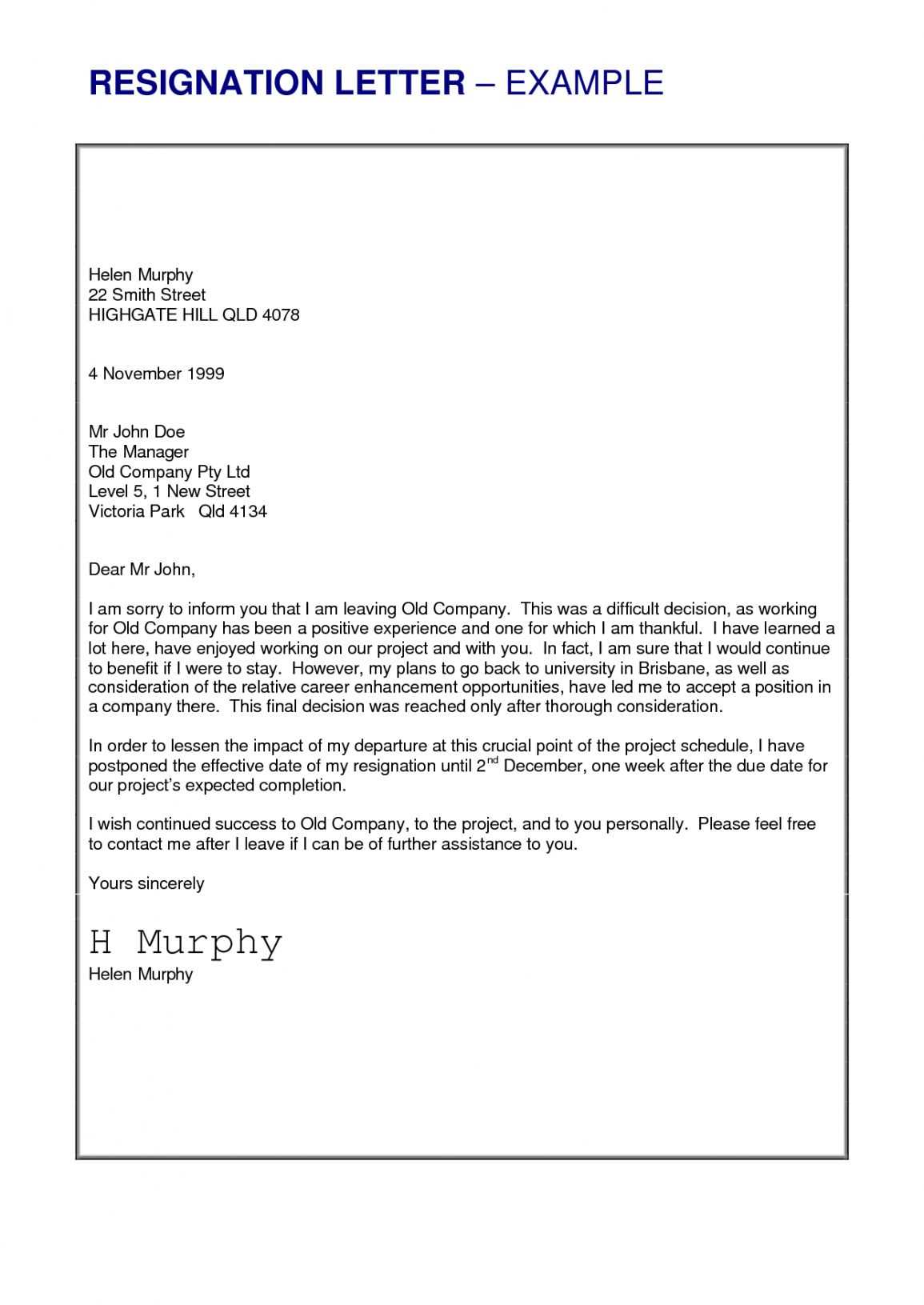
- Over-explaining: Avoid going into excessive detail about why you’re leaving, especially if personal reasons may cause discomfort.
- Ambiguous Dates: Be specific about when your departure will occur to prevent confusion and help the community plan accordingly.
- Neglecting to Offer Assistance: Offering help with the transition shows your commitment and consideration for the future of the group.
By following these guidelines, you can ensure a professional and smooth exit while maintaining a positive relationship with your community. A well-crafted notice not only helps others understand your decision but also leaves a lasting, respectful impression.
Why a Ministry Departure Notification Is Important
Key Components of a Formal Communication
How to Write a Respectful Farewell
Common Mistakes to Avoid in Your Message
Understanding the Right Tone
Sample Departure Communication for Clergy
Announcing a decision to leave a significant role in a religious community requires careful thought. This formal communication should convey gratitude, provide necessary details, and offer a respectful tone to ensure a smooth transition. Crafting this message in the right way is vital to maintain positive relationships and ensure clarity for everyone involved.
Key Components of a Formal Communication
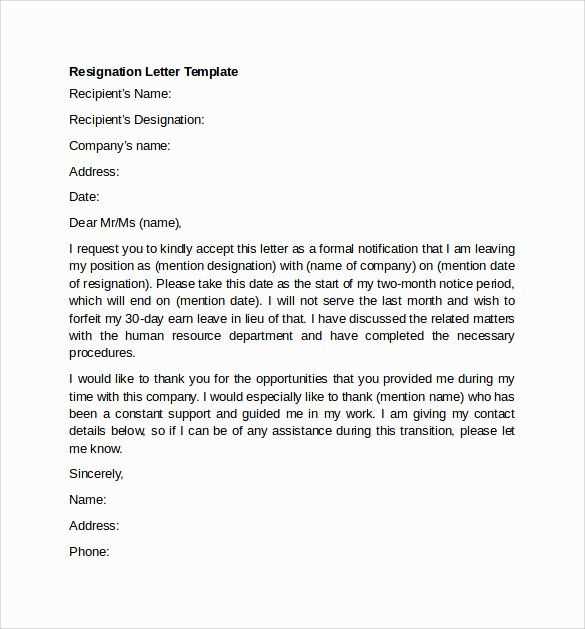
When preparing a formal notice, it’s essential to include certain elements to ensure your message is clear and respectful:
- Appreciation: Begin by expressing gratitude for the opportunity to serve and the experiences gained.
- Reason for Departure: Provide a brief, respectful explanation for stepping down without delving into unnecessary details.
- Dates: Mention your last day to help the community plan for a seamless transition.
- Offer Assistance: Express your willingness to help with the transition process, ensuring a smooth handover of responsibilities.
How to Write a Respectful Farewell
Writing a graceful farewell involves choosing your words carefully. Make sure your message remains humble and thankful, recognizing the significance of your role while remaining professional in tone. It’s important to avoid negative language, as the goal is to leave on good terms and show appreciation for the time spent in service.
Common Mistakes to Avoid in Your Message
- Being Overly Detailed: Keep the explanation of your departure brief and to the point. Avoid over-sharing personal reasons.
- Leaving Ambiguity: Clearly state the date of your departure to help others prepare.
- Failure to Offer Support: Always offer your help with the transition process, even if it’s just assisting with the handover of responsibilities.
Understanding the Right Tone
It’s crucial to maintain a respectful and professional tone throughout your communication. While your message should reflect the gravity of the situation, it should also convey your appreciation for the people and experiences you’ve encountered. Avoid overly casual or harsh language, and ensure your message is respectful and considerate of the community’s needs.
Sample Departure Communication for Clergy
Here’s a brief example of how to structure a respectful communication:
Dear [Name],
After much prayer and careful consideration, I have decided to step away from my role as [Position]. I want to express my heartfelt gratitude for the support, trust, and shared moments of growth during my time here. My last day will be [Date], and I am committed to ensuring a smooth transition for the community. Please let me know how I can assist during this time.
With gratitude,
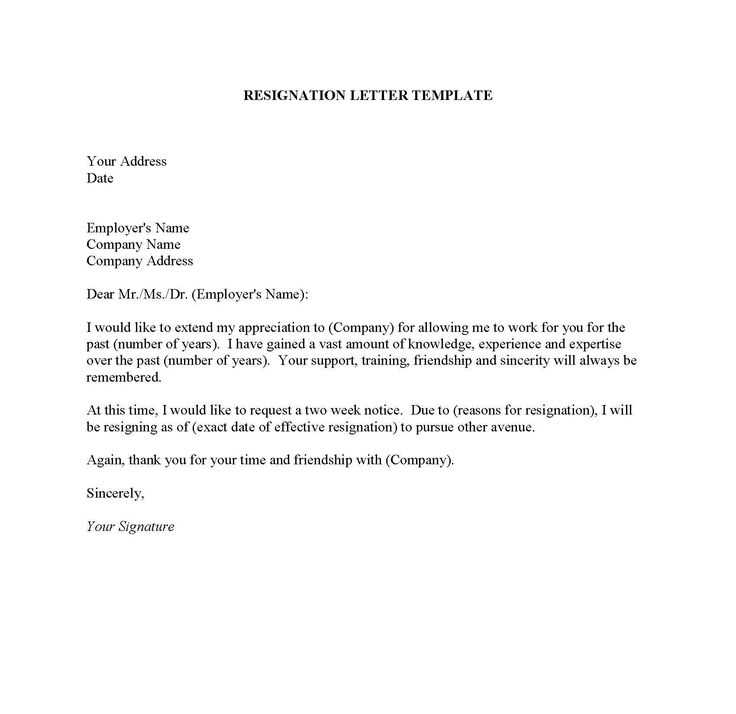
[Your Name]